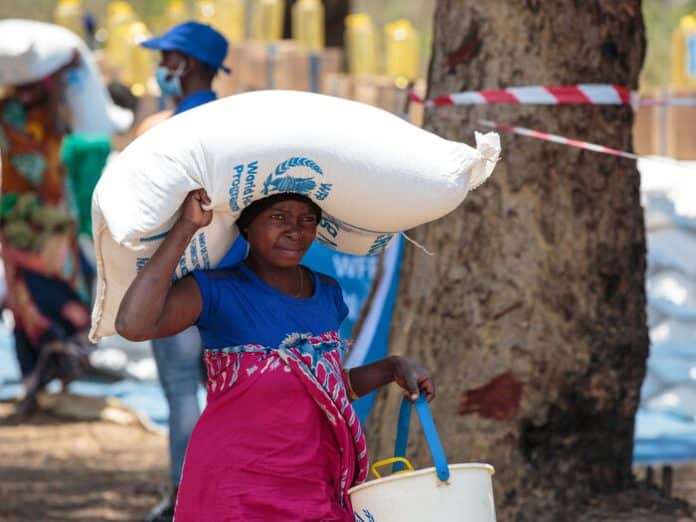WFP, the United Nations World Food Programme, is implementing a US$ 3.3 million project, funded by the Government of Norway, to strengthen climate change-adaptive food systems and expand school feeding programmes in the provinces of Inhambane and Gaza, southern Mozambique.
The goal of the project is to improve the food and nutrition security of smallholder farmers and their families in six districts of Gaza and Inhambane provinces and to support equitable access to basic education and to school feeding programmes in areas where access to education is weak due to food insecurity.
“Food security and climate resilience and adaptation are a key priority of the cooperation between Norway and Mozambique,” said Haakon Gram-Johannessen, Ambassador of Norway in Mozambique. “Norway is honoured to partner with one of the most trustworthy UN agencies in delivering much needed food and nutrition security strengthening including home-grown school feeding in this particularly climate vulnerable part of Mozambique.”

Support for 500 smallholder farmers
Under this timely contribution, and in coordination with provincial and district branches of the Ministry of Education, the Ministry of Agriculture and Rural Development, and the Ministry of Health, WFP will support 500 smallholder farmers to diversify crop production whilst improving their post-harvest and business management capacities. Some 17,000 primary school children will receive increased access to nutritious meals to enhance school attendance, from a home-grown school feeding model that promotes the purchase of fresh vegetables from local farmers, which also helps boost local economies.
“By scaling up integrated climate risk management programming with links to smallholder agricultural market support, benefits both smallholder farmers supplying fresh produce to schools, as well as schoolchildren and their families, who will receive nutritious meals.” said Antonella D’Aprile, WFP Mozambique Country Director.
Norway supports several initiatives
Norway supports several initiatives for immediate and long-term solutions to food security in shock-affected areas of Mozambique, including the conflict-torn northern Mozambique. This includes assistance to improve agricultural knowledge and productivity, promotion of market linkages, post-harvest losses reduction, improved nutrition, and climate-smart solutions.
Since 2020, Norway has contributed US$ 14 million to WFP’s operations in Mozambique. Norwegian funding to WFP Mozambique has been channelled to emergency response, school feeding, and livelihoods activities. Norway is also a top donor providing flexible funding for WFP globally, including in Mozambique.




